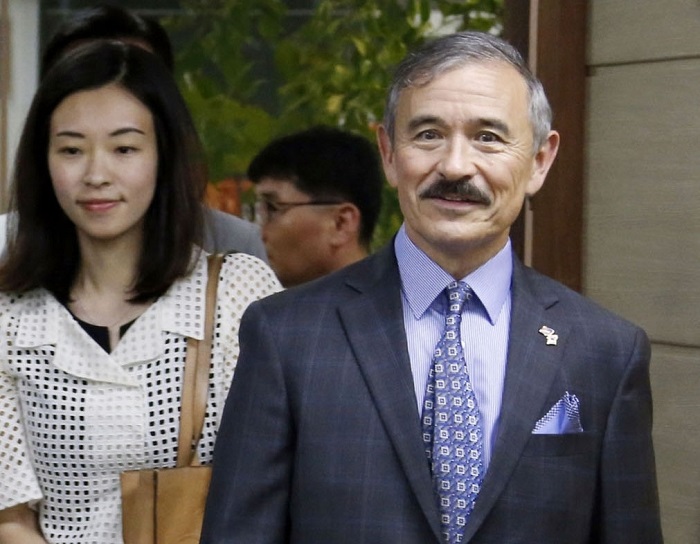Seoul, US Ambassador to South Korea Harry Harris said on Thursday that sanctions will remain in place until North Korea denuclearizes, as Washington and Pyongyang are preparing for their second summit later this month.
Harris was speaking at a forum in Seoul where he discussed the meeting that will be held between US President Donald Trump and North Korean leader Kim Jong-un in Hanoi, Vietnam, on February 27 and 28 to advance the dialogue on disarmament, Yonhap news agency reported.
“The US and our South Korean ally are in complete agreement that sanctions will remain until DPRK denuclearizes,” he said in a statement.
“Our goal remains the same: To achieve our shared objective of a final, fully verified denuclearization of the DPRK as committed (to) by Chairman Kim in Singapore,” he added.
Kim and Trump met for the first time in Singapore last year to discuss North Korea disarmament. During that meeting, Kim agreed to work towards the “complete denuclearization” of the Korean Peninsula but with little clarity on how to achieve that long-elusive goal.
It is expected that the second summit will serve to refine differences and clearly agree on what kind of disarmament Pyongyang would be willing to carry out and in what terms it could comply, as well as to establish compensation measures from Washington, the report said.
Pyongyang has requested compensation such as aid, the lifting of sanctions and the signing of a peace treaty to end the state of war which still technically prevails over the Korean Peninsula since the end of the conflict that devastated the region between 1950 and 1953.
Harris said that North Korea could expect a “brighter, more secure and more prosperous future”, if it fulfils its denuclearization promise.
He also credited South Korea’s President Moon Jae-in for his role in the groundwork for peace, as well as Beijing.
“Without China’s support on sanctions, we wouldn’t have achieved (the) progress that we have made so far.”
The envoy also used his speech to promote Washington’s policy for a “free, open” Indo-Pacific. “Developments on the Korean Peninsula are an important part of the US commitment to a free, open Indo-Pacific. This is not just the US’ interests but in all of our nations’ strategic interests,” he said.
“When we say open, we want all nations to enjoy open access to the seas and airways. And we want a peaceful resolution of territorial and maritime disputes, key to international peace,” Harris added.










